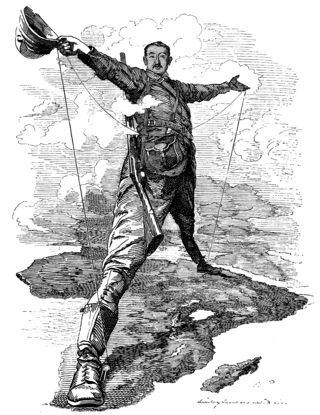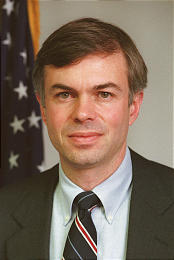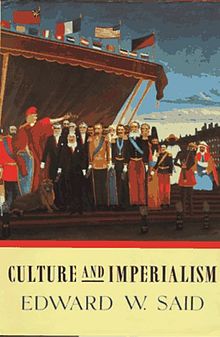Related Research Articles

The University of Utah is a public research university in Salt Lake City, Utah.

In historical contexts, New Imperialism characterizes a period of colonial expansion by European powers, the United States, and Japan during the late 19th and early 20th centuries. The period featured an unprecedented pursuit of overseas territorial acquisitions. At the time, states focused on building their empires with new technological advances and developments, expanding their territory through conquest, and exploiting the resources of the subjugated countries. During the era of New Imperialism, the European powers individually conquered almost all of Africa and parts of Asia. The new wave of imperialism reflected ongoing rivalries among the great powers, the economic desire for new resources and markets, and a "civilizing mission" ethos. Many of the colonies established during this era gained independence during the era of decolonization that followed World War II.
Supremacism is the belief that a certain group of people is superior to all others. The supposed superior people can be defined by age, gender, race, ethnicity, religion, sexual orientation, language, social class, ideology, nationality, culture, or belong to any other part of a particular population.

Rosalyn C. Higgins, Baroness Higgins, is a British former president of the International Court of Justice (ICJ). She was the first female judge elected to the ICJ, and was elected to a three-year term as its president in 2006.
B. S. Chimni is a legal scholar and academic who is presently distinguished professor of international law member at Jindal Global Law School. His areas of expertise include international law, international trade law and international refugee law. He has been chairperson of the Centre for International Legal Studies at Jawaharlal Nehru University, New Delhi. He had a 2+1⁄2-year stint as vice chancellor of the West Bengal National University of Juridical Sciences. He has been a visiting professor at the International Center for Comparative Law and Politics, Tokyo University, a Fulbright Visiting Scholar at Harvard Law School, visiting fellow at Max Planck Institute for Comparative Public Law and International Law, Heidelberg, and a visiting scholar at the Refugee Studies Center, York University, Canada.

Scott Milne Matheson Jr. is a United States circuit judge of the United States Court of Appeals for the Tenth Circuit. He has served on that court since 2010.

Culture and Imperialism (1993), by Edward Said, is a collection of thematically related essays that trace the connection between imperialism and culture throughout the 18th, 19th, and 20th centuries. The essays expand the arguments of Orientalism to describe general patterns of relation, between the modern metropolitan Western world and their overseas colonial territories.

Amos Neuser Guiora is an Israeli-American professor of law at S. J. Quinney College of Law, University of Utah, specializing in institutional complicity, enabling culture, and sexual assaults. Guiora’s scholarship explores institutional complicity in relation to the victimization of young people by college sports coaches, trainers, doctors, and Catholic priests. As a result of this work, Guiora has become not just an academic but also an advocate for sexual assault victims.
Postcolonialism is the critical academic study of the cultural, political and economic legacy of colonialism and imperialism, focusing on the impact of human control and exploitation of colonized people and their lands. The field started to emerge in the 1960s, as scholars from previously colonized countries began publishing on the lingering effects of colonialism, developing a critical theory analysis of the history, culture, literature, and discourse of imperial power.

The S.J. Quinney College of Law is the professional graduate law school of the University of Utah. Located in Salt Lake City, Utah, the school was established in 1913. It is a member of the Association of American Law Schools and is accredited by the American Bar Association.

Michael Robert Auslin is an American writer, policy analyst, historian, and scholar of Asia. He is currently the Payson J. Treat Distinguished Research Fellow in Contemporary Asia at the Hoover Institution, Stanford University, a Senior Fellow in the Asia and National Security Programs at the Foreign Policy Research Institute, and a senior fellow at London's Policy Exchange. He was formerly an associate professor at Yale University and a resident scholar and director of Japanese studies at the American Enterprise Institute, a conservative think tank in Washington, D.C.

Elements of International Law, first published in 1836, is a book on international law by Henry Wheaton which has long been influential.
Lee Seokwoo is a Korean academic, author and member of the law faculty at Inha University at Incheon, Korea.

The Real Colegio Complutense at Harvard University, US: The RCC at Harvard is an academic institution aimed at providing intellectual exchange between Harvard and the Spanish Academia. It is located at 26 Trowbridge Street, Cambridge (MA).

Shlomo Yitzhaki was an Israeli economist and the Sam M. Cohodas Professor Emeritus of Agricultural economics at the Hebrew University of Jerusalem. From 2002 to 2012 he served as the chief statistician and director of the Israeli Central Bureau of Statistics.
Third World approaches to international law is a critical school of international legal scholarship and an intellectual and political movement. It is a "broad dialectic opposition to international law", which perceives international law as facilitating the continuing exploitation of the Third World through subordination to the West. TWAIL scholars seek to change what they identify as international law's oppressive aspects, through the re-examination of the colonial foundations of international law.
The SOAS School of Law is a law school of the University of London. It is based in the Paul Webley wing of the Senate House in Bloomsbury, London, United Kingdom. The SOAS School of Law has an emphasis on the legal systems of Asia, Africa and the Middle East.

Jorge L. Contreras is an American legal scholar and attorney who is recognized as a leading global authority on intellectual property law, technical standardization and the law and policy of human genomics.
Ram Prakash Anand (1933–2011) was an international legal scholar and a pioneer of Third World approaches to international law.

Micronations and the Search for Sovereignty is a non-fiction book written by the Australian lawyers and legal academics Harry Hobbs and George Williams about micronations and their legal status within international law. Written from an academic perspective, it is one of few works on micronational movements and the earliest-published book to focus largely on the legal aspect of micronations. The book concerns the definition of statehood, the place of micronations within international law, people's motivations for declaring them, the micronational community and the ways by which such entities mimic sovereign states.
References
- 1 2 "Antony T. Anghie". nus.edu.sg. Retrieved October 24, 2017.
- ↑ "Governing Bodies". AsianSIL.org. Retrieved October 24, 2017.
- 1 2 3 "Antony T. Anghie". utah.edu. Retrieved March 5, 2017.
- ↑ "External Advisors". warwick.ac.uk. Retrieved March 5, 2017.
- ↑ "Anghie, Antony". worldcat.org. Retrieved March 5, 2017.
- ↑ Anghie, Antony (2020). "Foreword: Welcoming the TWAIL Review" (PDF). Third World Approaches to International Law Review.
- ↑ Anghie, Antony (2005). Imperialism, Sovereignty and International Law. p. 1.
- ↑ "Teaching and Researching International Law in Asia (TRILA)". Centre for International Law. Retrieved 2020-12-07.
- ↑ "Professor Tony Anghie receives prestigious international law medal". 2023-01-12. Retrieved 2023-03-03.
- ↑ Anghie, Antony (2005). Imperialism, Sovereignty and the Making of International Law. Cambridge University Press. p. 310. ISBN 978-0-521-70272-0.
- ↑ Ibid., pp. 310-311.
- ↑ "US legal scholars urge Biden to seek immediate ceasefire from Israel". The Guardian . Retrieved 17 October 2023.
- ↑ "Legal Scholars Demand Withdrawal of US Support for Attacks on Gaza" . Retrieved 17 October 2023.